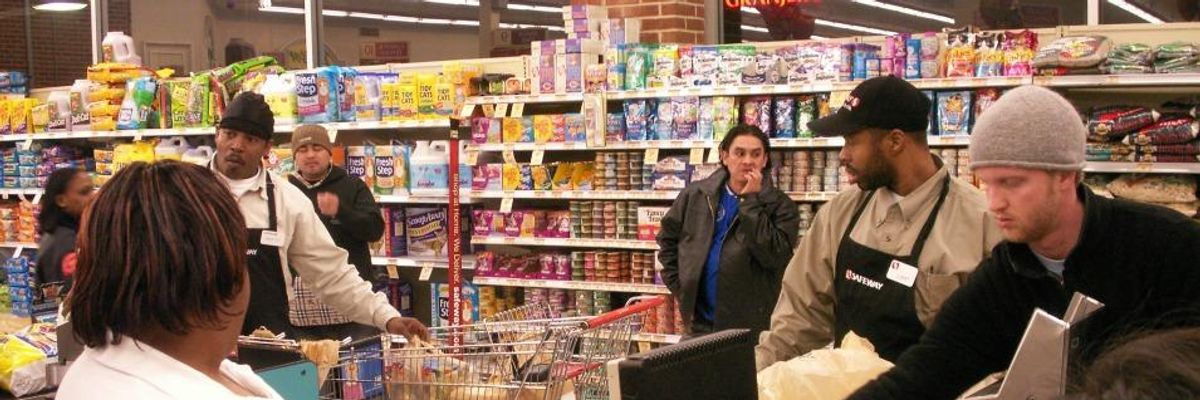The U.S. Federal Trade Commission announced on Tuesday it has approved the $9.2 billion merger of Safeway Inc. and Albertsons, clearing the way for the creation of the country's third largest grocery retailer (behind Walmart and Kroger) and, according to critics, leaving consumers vulnerable at a time of poverty, low wages, and food insecurity.
The Commission green-lighted the merger after the companies agreed to sell 168 of their stores. FTC Chairwoman Edith Ramirez claimed in a statement that the sales alleviate any concerns that the merger will lead to higher prices. "This settlement will ensure that consumers in those communities continue to benefit from competition among their local supermarkets," she said.
But the divested stores represent just seven percent of the chains' combined 2,400 stores, and in the words of Wenonah Hauter, executive director for Food and Water Watch, amount to "a paltry number of grocery stores in a handful of cities." The deal, therefore, allows the supermarkets to maintain their "stranglehold on consumers," said Hauter, almost certainly leading to higher prices and lower quality.
Furthermore, Hauter continued, "The FTC did not require the chains to divest a single store in twenty metropolitan areas where the merger combined local rivals. In these markets, the four largest retailers will sell two-thirds of all groceries, and 12 million consumers will face higher prices and reduced choices.
"The FT approved a divestiture plan that is simply inadequate to protect consumers," concluded Hauter. "It largely permits supermarkets to tighten their stranglehold on consumers at a time of rising grocery prices and stagnant wages."
A USDA study published in September found that nearly 50 million people in the U.S. struggled with food insecurity in 2013.
It is not immediately clear how the merger, which both companies say they want to complete withing five business days, will impact the tens of thousands of unionized workers at both chains.

